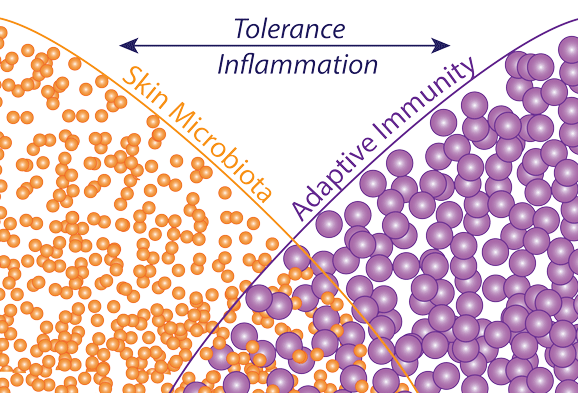Inflammatory skin disorders are some of the most challenging diseases for dermatologists to treat due to their persistent nature and the side effect profiles of current therapies. We now recognize that inappropriate immune responses to skin bacteria have the potential to contribute to inflammation and in some cases play a major role in the pathogenesis of these disorders. Additionally, skin commensal microbes are capable of modulating the function of cutaneous lymphocytes in a way that promotes homeostasis. Colonization by commensal organisms, education of the adaptive immune system and establishment of immune tolerance to skin commensal bacteria occur early life when the host-commensal relationship is first established. A deeper understanding of the cellular and molecular mechanisms that establish and maintain a healthy adaptive immune response to skin commensals is needed to better define how breakdown in this relationship contributes to inflammatory skin disease and to enable the development of new therapies with enhanced efficacy and fewer side effects.
Research in our lab aims to:
- Define host pathways and immune cell populations that facilitate establishment of immune homeostasis with skin commensal bacteria
- Identify commensal-derived molecules that influence the development and function of adaptive immune cell populations in the skin
- Elucidate unique mechanisms in the early life window that shape cutaneous immune function and long term responses to the microbiota.
Our scientific approach capitalizes on genetic manipulation of skin commensal bacteria, profiling of both host and microbial cells, study of human skin directly ex vivo and in explant models and sophisticated murine models to dissect the antigen-specific response to skin commensal organisms.
